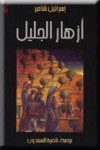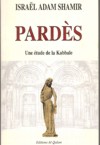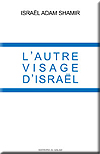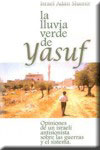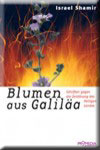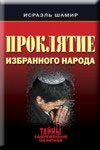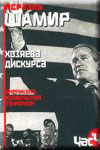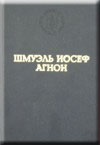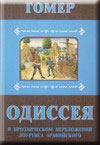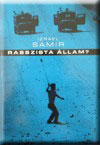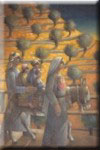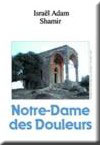War of the Languages
Hesham Bahari
Translated from Swedish by Ulla Ericson
Concepts like ”Arabs” and ”Islam” are often used in different writings without further specification. To most Western readers the words create a picture, given beforehand, which it took the West centuries to spread and confirm. As a matter of fact hardly two out of ten Muslims are so called “Arabs” (i.e. Arabic-speaking) , and of these at most ten percent are ethnic Arabs, i.e. whose origin is in the Arab Peninsula . If the “islamization” , historically, has succeeded in spreading Mohammed’s faith from the Atlantic to Indonesia in a few hundred years, then “the arabization” seems to have been less successful and has just been able to affect a fraction of all Muslim life. The interesting thing here is that the arabization process was most successful among Christians and Jews in the countries first subjected to the conquest of the Arabs. Besides, it has been used by Muslim secular forces in our time to diminish the power of religion over society. A large part of the Arabic-speaking peoples from Morocco to the Persian Gulf have once been Christians and Jews who have converted to Islam and to the victorious cultural language in those days: the Arabic. This led to a great number of Arabic dialects being formed at the expense of the older languages but without totally superseding them.
In the Arabic dialects of Egypt for example we can see how both grammatical structures and vocabulary belonging to Old Egyptian (Coptic) still assert themselves. In Syria it is Aramaic which is the background of the Arabic language spoken today, while in North Africa the colloquial language has been interspersed with both Berber and French elements. In linguistics you talk in such cases of “diglossia”, a situation where there are great differences between the spoken language (the one you learn at home without having to go to school) and the written language used in official contexts. In a diglossia situation the “low” variety of the mother tongue is calumniated by those who have managed to master the “high” official variety. In that way the notion is spread in “the Arab world” that only the classical Arabic is a genuine language, whereas the spoken varieties (Egyptian, Syrian, Iraqi, Maghribine etc…) are described as languages lacking a grammar and rules, “a chaotic chatter without sense”. In other words, everything is done to disparage the culture that belongs to popular life and, through the spoken language itself keeps alive pre-Arab cultural life patterns still today. Curiously enough, the elevation of the classical language to the ruling one coincides with both imperialistic and fundamentalistic aims. “Arabism” is said by some to have been encouraged by the British and reinforced by the Americans, just to be able better to control the new-born and oil-rich Arab kingdom which was named Saudi Arabia after its founder, ibn Saud. The fundamentalistic life-style of this kingdom has since been exported to large parts of the Muslim world thanks to the oil money.
This has made some intellectuals in the Arabic-speaking world call in question the importance of defending the classical variety of Arabic, which is difficult to learn and which few people really master, and work for an upgrading of the spoken languages and dialects to official languages. Such a view is put forward by e.g. the Egyptian linguist Bayoumi Qandil in two of his books: “The Present-Day Culture in Egypt ” and “Defence of Our Coptic Inheritance”. Qandil (or Andil as he prefers to write avoiding the classical use of the q-sound which is unfamiliar for Egyptian ears) does not take a religious viewpoint in his criticism of Arabism (he is a Muslim himself) but builds his criticism on socio- and psycholinguistic facts. The situation is recognized from the European renaissance when the French, the Italian, the German, The Swedish etc… languages superseded Latin from the centres of learning and the gospels were translated into these dialects, once unwritten. Intellectuals defending this view in the Arabic-speaking world hold forth that no progress can be made as long as diglossia is maintained and classical Arabic is dominating. They are too few still today. The “high” written language of diglossia also involves high status and makes possible the dominance over those who only master their mother tongue. This explains why most intellectuals in the Arab world are prepared to go so far as to deny even the slightest grammatical structure of the dialect.
The title of Bayoumi Qandil’s book, “The Present-day Culture in Egypt”, alludes to an older book from the interwar period, written by Taha Hussein, “The Future of Culture in Egypt”, where the author tried to place Egypt into a wider Mediterranean culture with equal components of Pharaonism, Hellenism and Arabism. In his book Qandil, among other things, tells of the recommendations now given in the school books about the importance of teaching the children to avoid the traditional multiplicity of genial greetings adjusted to the various times of day and night and instead encourage them to adopt the only permissible one in rigorous Islam, “as-salamu alaykum”.
Such recommendations are, of course, ridiculous to most Egyptians who ever since the time of the Pharaohs have begun and ended their days with honey-flavoured, jasmine-scented greetings. According to the author these recommendations were sanctioned by the American experts who have been engaged in the reform work concerning the school books, among many other things. In his book Qandil speaks of a cultural murder openly going on of one of the oldest civilized peoples in history, the Egyptian one, and he questions the role of the experts, both the imported and the native ones, in what is happening. During a linguistic conference in the University of Cairo Qandil received the following reply from a doctor of linguistics: “Everything you say is true but not when the Arabic language is concerned!” And when he asked the displeased scholar why, the answer was: “Because it is the language of the Koran, you know!” In Egypt , most “educated” people still believe that the spoken language should not be used except in every day situations! The fact that Qandil has written a large part of his book, including linguistic arguments, in that same Egyptian colloquial language, proves beyond doubt that this can be used in other than “everyday situations”.
But the prohibitionists do not stop at the greeting ceremonies and linguistic or unlinguistic arguments. All folklore, if it is not sanctioned by the “learned”, is to be considered as an expression of pagan remnants. When the Agha Khan Foundation transformed one of the largest garbage dumps in Cairo behind the al-Azhar Mosque into a large beautiful park with an open stage where music, dance and poetry evenings could be held in one of the city’s poorest quarters, the project became a roaring success. Recently all cultural activity in the al-Azhar-park has been stopped by the authorities, without explanations. Genuine folk music has in fact always been forbidden in the Egyptian TV- and radio channels, to say nothing of poetry written in dialect.
Bayoumi Qandil’s book levels a devastating criticism on the so called “educated” cadres of the country. The only hope to be found, according to his analysis is among the “illiterates”, those who have not been subjected to the influence of school, the popular poets and musicians whom the elite looks down on but who constitute such a threat against those in power that these find themselves compelled to finish the successful experiment in the al-Azhar-park, an experiment that transformed a stinking dump into a verdant cultural paradise. The ancient culture of Egypt with its multiplicity, its abundance and its broad outlook has never been more threatened than today.
That the written language is associated with the religious dogmas of these nations naturally obstructs all attempts to change to the dialects which are more comprehensible to the peoples.
The classical Arabic language is still today a kind of Latin binding together Muslims from all over the world, even if they do not speak any of its dialectal varieties and have their own totally different native languages. This in itself makes many want to retain it as a buttress between otherwise so different cultures. I might have gone along with that argument if I lived during the golden age of Islam when the Muslims were forerunners and not lagging behind as is the case today. But more and more observations make me, like Qandil and others, want to give the so called dialects a chance, if nothing else then in order to break the power of the Arab intellectuals (politically, religiously and so on) over their less well-favoured fellow creatures. It is among so called illiterates in Egypt , Morocco or Yemen that the hope for a better future can be created; on the day when they discover that everything can actually be said in their beautiful dialects which are complete languages with their own grammar, history and poetry. The day when the mother tongues win that battle in the Arabic-speaking world, Islam, too, will benefit from it, and its message will be both more factual and clearer, rid of all the rubbish which has been collected and survived up to now.
Liberating the Arabic-speaking peoples from the tyranny of the written language (the “high” variety of diglossia) appears to be a prerequisite of liberating everything Arabian and deepening the pact once concluded between the Koran and those following its way. “No compulsion in religion”, it says in the Book. The concept must be widened to apply to the languages too and our understanding of their nature and mission. The Andalusian philosopher and court physician ibn Tufail must have understood that long ago, and he took into consideration the Islam that the philosophers and mystics were spreading when he wrote his book about “Hayy ibn Yaqzan” in the 12th century. He even went one step further and had his hero lacking both a religion and a language without this affecting his redemption and his discovery of the holiness in all things alive. Unfortunately there are not many intellectuals of today who are up to the world conception of this philosopher from the 12th century. Islam to him was to do the right thing, i.e. to sanctify life and all living beings. And Hayy is just one of God’s many names.
The Islam ibn Tufail lived in was, however, an important era in the historic development of the monetary system, an era which had continued building on the Roman example and ended in the more accomplished West European one. He knew that all too well and so had his hero, a model of Robinson Crusoe, choosing to return to his desert island instead of leading a life among the well-supplied, easily manipulated and narrow-minded people of civilization. In his days the monetary system was not predominant. People had options which we lack but can rediscover. The bank system had not yet superseded old tribal affiliations, village communities and the collective land owning that were still prevailing in many places. The concept of nations was unknown in our sense. Something great and new might have been born from this “Islamic” civilization but did not. The Islamic promise of a world free from usury came to nothing. The original Arabs were forgotten till the oil gave them a chance but they wasted it on luxury and weaponry instead of education. And their arabized brothers and sisters still today fight against one colonial power after another without being able to breaking loose, once and for all.
Uncertainty of the future has never been an obstacle to creativity and renewal; it is on the contrary a spur to greater exploratory urge. If Robinson Crusoe was most concerned about his pension and how it could yield interest, Hayy teaches us that the mission of man is to reach the ultimate knowledge, without destroying the earth which the Creator has entrusted to him. The peoples will manage excellently if they are left alone with their native tongues. It is not until they are taught to distinguish between “high” and “low” that the tongues are set wagging.



